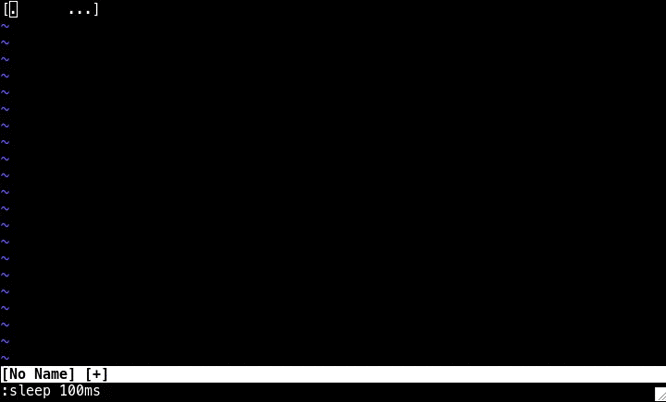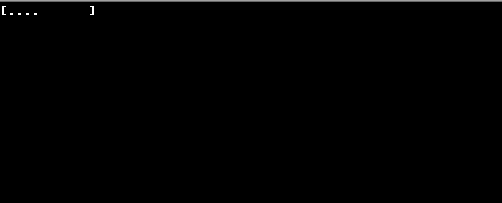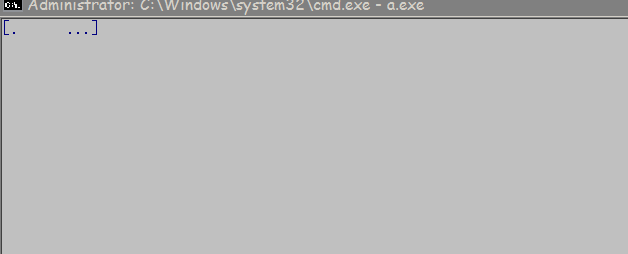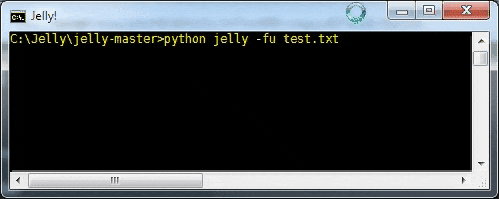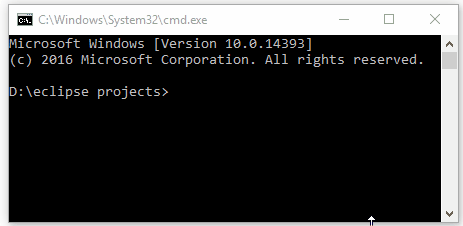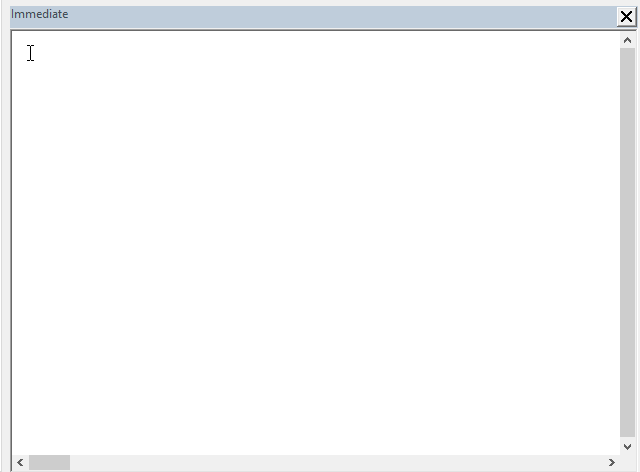Crea una barra di caricamento in stile Windows seguendo le seguenti istruzioni.
(nota che questo è diverso dal caricamento in corso ... per sempre )
L'output dovrebbe iniziare entro [.... ].
Ogni segno di spunta, dovresti attendere 100 ms, quindi spostare ogni punto di un carattere a destra. se il punto è sul decimo carattere, spostalo sul primo. Si noti che è necessario cancellare lo schermo prima di emetterlo di nuovo. L'output è ordinato come segue:
[.... ]
[ .... ]
[ .... ]
[ .... ]
[ .... ]
[ .... ]
[ ....]
[. ...]
[.. ..]
[... .]
..Poi si avvolge per sempre.
Regole
- Questo è code-golf , quindi vince la risposta più breve,
dubito che accetterei anche una risposta vincente - Se possibile, fornire un file gif della barra di caricamento in azione.
\rconsentito, invece di cancellare letteralmente lo schermo?
